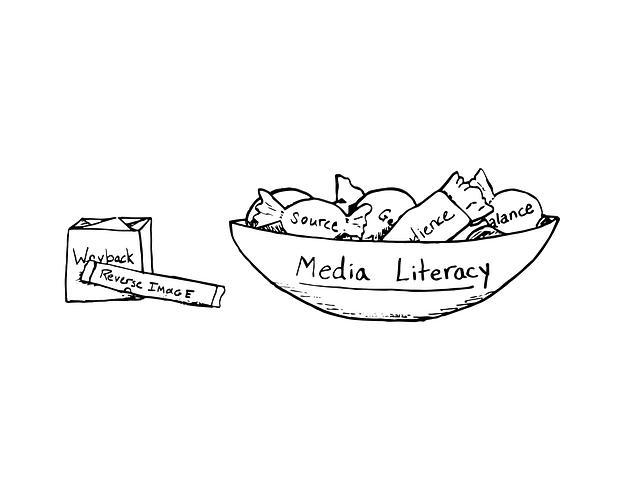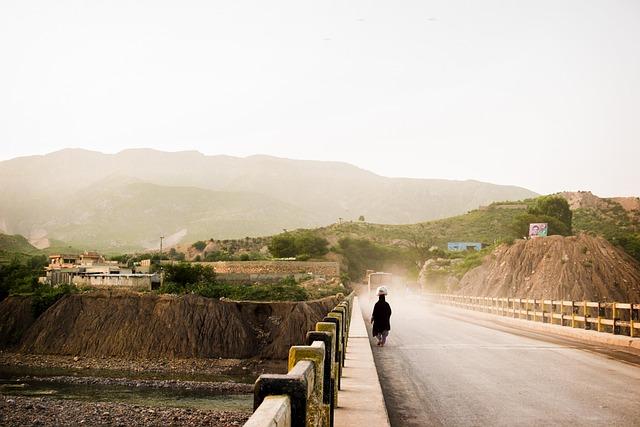In the sprawling landscape of Pakistan’s media, where every voice vies for attention amidst the clamor of breaking news and cultural narratives, the pursuit of truth often mirrors a delicate dance—one fraught with challenges and triumphs. “Echoes of Truth: Navigating Journalism in Pakistan’s Media Landscape” invites readers to explore the intricate pathways that define journalistic integrity in a country where the lines between fact and fiction can sometimes blur. As we delve into the complexities faced by journalists, from governmental pressures to societal expectations, this article aims to illuminate the resilience and innovation driving a dynamic field that is as vital as it is volatile. Join us as we uncover the layers of storytelling that shape public discourse, reflect on the pillars of ethical journalism, and celebrate the unwavering spirit of those who strive to keep the echoes of truth resonating through the heart of the nation.
Resilience in Reporting: Upholding Integrity Amidst Challenges
In the turbulent waters of Pakistan’s media landscape, journalists often find themselves navigating treacherous currents. Amidst these challenges, maintaining integrity becomes a matter of resilience, a vital quality that allows reporters to rise above pressures such as censorship, intimidation, and the ever-looming threat of misinformation. The role of a journalist is not just to report but to be the guardian of truth, ensuring that the voice of the marginalized is heard and that the facts remain salient despite overwhelming challenges. This commitment to authenticity leads journalists to employ strategies that reinforce the importance of ethical standards, allowing them to withstand the storms they face.
To uphold this integrity, journalists engage in several essential practices:
- Thorough Fact-Checking: Before publication, stories undergo rigorous verification processes to ensure accuracy.
- Support Networks: Building alliances with fellow journalists provides a shield against oppressive forces and fosters a collaborative spirit.
- Transparency: Communicating openly about sources and methods helps to cultivate trust with the audience.
- Community Engagement: Journalists actively participate in civil society initiatives, reinforcing their commitment to the people they serve.
Through these diligent efforts, journalists in Pakistan cultivate a resilience that not only protects their work but also upholds the credibility of the media as a whole. This commitment fosters an environment where truth can echo louder than ever, ensuring that journalism remains a powerful catalyst for social change, even in the face of adversity.

Voices from the Shadows: Empowering Citizen Journalism
In a nation where the media often finds itself caught between government censorship and societal pressures, citizen journalism emerges as a beacon of hope. Ordinary individuals armed with smartphones and social media accounts are reclaiming their narrative power, reporting on issues that mainstream outlets may overlook. This grassroots movement fosters an environment where diverse voices can challenge prevailing narratives, bringing to light the hardships faced by communities across Pakistan. Through platforms like Twitter and Facebook, these citizen reporters are not just passive consumers of information; they are active contributors, shaping the discourse and demanding accountability from those in power.
The impact of this burgeoning movement is palpable. By bypassing traditional gatekeepers, citizen journalists create a more inclusive media landscape that reflects the realities of everyday life. They cover a wide range of topics, including:
- Human Rights Violations
- Environmental Issues
- Local Governance
- Social Injustices
To foster a stronger network among these emerging journalists, community workshops and online forums are proving invaluable. Many organizations are collaborating to provide training in ethical standards, storytelling techniques, and digital literacy. This nurturing environment aids in building a resilient community of reporters who are not only passionate about uncovering the truth but also equipped to tackle the unique challenges of the Pakistani media landscape. As they navigate the complexities of journalism, their contributions redefine the essence of news reporting, emphasizing the importance of authenticity and localized narratives.

Bridging the Gap: Enhancing Media Literacy for Informed Public Discourse
In a rapidly evolving media landscape, enhancing the public’s ability to critically evaluate information is paramount. The surge of misinformation, particularly in volatile political climates, has amplified the necessity for improved media literacy programs. By equipping individuals with robust skills to discern fact from fiction, we empower them to participate meaningfully in public discourse. Initiatives can include:
- Workshops and training sessions focused on identifying credible sources.
- Community engagement programs that promote discussions about news content and its impact.
- School curricula that integrate media literacy as a core subject.
Furthermore, strategic partnerships between educational institutions, media organizations, and civil society can foster a culture of critical thinking. These alliances can be instrumental in promoting transparency and accountability within journalism, creating a feedback loop where the public feels more confident in questioning the narratives presented to them. A focus on digital literacy can also enhance understanding across different media formats. To facilitate this, we can implement:
| Medium | Challenges | Opportunities for Literacy Enhancement |
|---|---|---|
| Social Media | Viral misinformation | Workshops on fact-checking tools |
| Television | Bias in reporting | Public forums for critical discussion |
| Print Media | Decline in readership | Incentives for credible journalism |

Toward a New Paradigm: Strategies for Ethical and Sustainable Journalism
In a rapidly evolving media ecosystem, embracing innovation while upholding journalistic integrity is crucial for building trust with audiences. To foster ethical reporting, journalists must prioritize the following strategies:
- Transparency: Clearly inform the audience about the processes behind the stories, including sources and methodologies.
- Community Engagement: Collaborate with local communities to ensure that reporting reflects their realities and voices.
- Diverse Perspectives: Incorporate a variety of viewpoints to enrich narratives and challenge biases.
- Fact-Checking: Prioritize rigorous verification of information to combat misinformation and enhance credibility.
Moreover, addressing the challenges of sustainability in journalism requires a commitment to responsible practices that safeguard the industry’s future. Key areas of focus should include:
- Digital Literacy: Provide education on media consumption to empower audiences to discern credible news sources.
- Support Local Journalism: Encourage funding models that reduce reliance on sensationalism, promoting quality over clicks.
- Ethical Advertising: Implement standards for sponsored content to clarify the distinctions between journalism and marketing.
| Strategy | Impact |
|---|---|
| Transparency | Builds trust with the audience. |
| Community Engagement | Enhances relevance of content. |
| Diverse Perspectives | Challenges biases and enriches narratives. |
| Fact-Checking | Combats misinformation. |
The Way Forward
As we conclude our exploration of “Echoes of Truth,” it becomes clear that the landscape of journalism in Pakistan is both intricate and evolving. The challenges of navigating truth amid political turbulence, social complexities, and technological advancements create a dynamic environment for media professionals. In this ever-shifting terrain, the role of the journalist transcends mere reporting; it becomes a commitment to uphold integrity and foster informed discourse.
Pakistan’s media, rich in stories and experiences, stands at a crossroads where the past influences the present, and the future beckons with the promise of innovation. By championing transparency and ethical standards, journalists can continue to illuminate the truths that lie beneath surface narratives, driving society toward a more informed and engaged citizenry. As the echoes of truth resonate throughout the nation, may they inspire a new generation of storytellers to navigate with courage, creativity, and a steadfast dedication to the principles that underpin their vital work. In a world often fraught with misinformation, let us remember that the pursuit of truth is not just a profession—it is a profound responsibility that shapes the very fabric of society.



